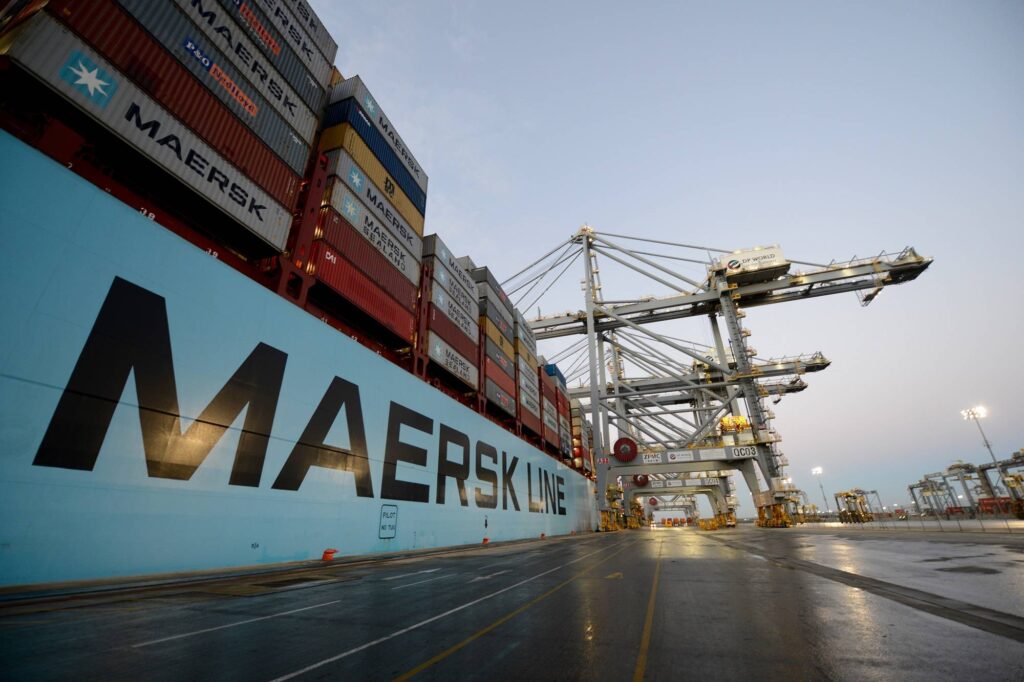Desk of Contents:
- Advantages of Utilizing Blockchain in Supply Chain
- Case Studies of Blockchain in Supply Chain
- Applications of Blockchain in Supply Chain
- Challenges of Using Blockchain in Supply Chain
A warm cup of coffee traveled from a farm thousands of miles away to your kitchen. How can you be sure it’s truly authentic or ethically sourced? How many hands did it pass through before reaching your doorstep? Tracking products through supply chains is complex, as errors and frauds can easily creep in. But what if I say there is a way to make the entire process transparent, secure, and trustworthy? Yes, that’s possible.
Welcome to Blockchain, a revolutionary technology in Supply Chain that provides an open, decentralized ledger, that records your every transaction. With the help of Blockchain in the Supply Chain, you can track your product’s journey from start to finish with the guarantee of authenticity – no secrets. Blockchain in the Supply chain ensures that all parties like suppliers, manufacturers, and retailers are involved. The relief after knowing exactly where and how your favorite products are made, Blockchain in Supply Chain makes this possible. But what exactly does Blockchain have to do with Supply Chain? In this blog, we will explore how Blockchain has become a game changer for supply chain management.
Blockchain has emerged as a transformative force in supply chain management. It offers transparency, security, and efficiency. But why exactly is it becoming the go-to solution for modern supply chains? Here’s a detailed look of the benefits of using Blockchain in the Supply Chain.
Benefits of Using Blockchain in Supply Chain:
1. Transparency & Traceability:
Blockchain provides an immutable, transparent ledger that records every transaction across the supply chain. This means that all participants can access the same data in real time. This transparency allows for precise tracking of products, enabling businesses to trace the origin of goods and monitor their journey through each stage of the supply chain.
For instance, in the food industry, Blockchain in the supply chain can help trace the path of produce from farm to table, ensuring that consumers receive safe, fresh, and properly sourced products.
2. Increased Security:
The security features of blockchain in Supply Chain technology, such as encryption and decentralized record-keeping, make it highly secure. Once a transaction is recorded on the blockchain, it cannot be altered or deleted. This immutability ensures that data remains accurate and trustworthy.
In sectors like pharmaceuticals or luxury goods, where counterfeiting is a significant concern, Blockchain helps verify the authenticity of products and prevent the entry of fake goods into the supply chain.
3. Efficiency:
Blockchain in the Supply Chain enables the use of smart contracts. These contracts automatically execute and enforce agreements when specific conditions are met, reducing the need for intermediaries and manual processing.
For example, a smart contract can automatically release payment to a supplier once goods are delivered and verified, speeding up transactions and reducing administrative costs.
4. Cost Savings:
By streamlining processes and reducing the need for intermediaries, Blockchain can lower costs across the supply chain. Traditional supply chains often involve multiple third parties, paperwork, and manual verification processes, all of which can add to costs. Blockchain automates many of these functions with smart contracts, digital agreements that automatically execute when conditions are met.
For example, a smart contract can automatically release payment to a supplier once delivery is confirmed, reducing administrative costs and speeding up transactions.
5. Increased Trust Among Partners:
Blockchain fosters greater trust among supply chain partners by providing a single, transparent source of truth in the Supply Chain. Since all parties have access to the same data, disputes and misunderstandings are less likely. This collaborative environment leads to stronger relationships and more effective partnerships, benefiting everyone involved in the Supply Chain.
6. Quality:
With the help of Blockchain in the Supply Chain, companies can ensure that products meet regulatory requirements and quality standards. Each step in the supply chain is recorded, providing a comprehensive audit trail that demonstrates compliance with regulations and internal policies.
For example, a pharmaceutical company can use blockchain to track the production and distribution of medications, ensuring that they meet safety and quality standards.
Blockchain in Supply Chain technology has numerous remarkable case studies. Let’s look into them.
Case Studies of Blockchain in Supply Chain:
1. Walmart – Food Safety and Traceability:
Source: pc-tablet.com
Walmart has been a pioneer in using Blockchain technology to enhance food safety in Supply Chain. In partnership with IBM, Walmart implemented a blockchain system to trace the origin of products like mangoes and pork. Before Blockchain, tracing a product’s journey from farm to shelf could take several days. With the help of Blockchain in the Supply Chain, this process was reduced to a matter of seconds. This system allows Walmart to quickly identify the source of contaminated food in case of a recall, significantly reducing the risk of widespread illness and improving consumer safety.
2. Maersk – Global Trade and Shipping:

Source: exolwrmuq.blob.core.windows.net
Maersk, the world’s largest shipping company, partnered with IBM to develop a blockchain-based platform called TradeLens. This platform digitizes the entire global shipping process, from documentation to cargo tracking. TradeLens uses Blockchain in the Supply Chain to provide real-time access to shipping data for all stakeholders, including shippers, port operators, customs authorities, and freight forwarders. By reducing paperwork and streamlining operations, TradeLens has helped Maersk cut costs, improve transparency, and enhance the efficiency of global trade.
3. De Beers – Diamond Supply Chain:

Source: news.pindula.co.zw
De Beers, the global diamond giant, uses Blockchain in its Supply Chain to ensure the authenticity and ethical sourcing of diamonds through its platform, Tracr. The Blockchain records every step of a diamond’s journey, from mining to retail. This ensures that diamonds are conflict-free and ethically sourced, addressing concerns about “blood diamonds” entering the market. Consumers and retailers can use Tracr to verify the provenance of diamonds, building trust and ensuring compliance with industry standards.
Blockchain technology has found applications across various industries, revolutionizing the way businesses operate. Here are some of the top applications of blockchain in different industries:
Applications of Blockchain in Supply Chain:
1. Agriculture:

Source: fabnews.live
In agriculture, Blockchain improves traceability and transparency by recording every step of the food supply chain. This allows consumers to trace the origin of their food, ensuring quality and authenticity.
Example – The IBM Food Trust platform enables farmers to record information about crop origins and handling, helping to enhance food safety and reduce waste.
2. Healthcare:

Blockchain in the Supply Chain of healthcare secures patient data and improves interoperability between healthcare providers. It allows for the creation of a single, tamper-proof record of patient information, which can be accessed by authorized parties with consent.
Example – Companies like MedRec use blockchain to manage patient records and streamline data sharing among healthcare professionals.
3. Retail:

Source: contentsquare.com
Blockchain applications in retail focus on enhancing customer experience and supply chain transparency. Retailers use blockchain to verify the authenticity of products and ensure ethical sourcing.
Example – De Beers uses blockchain to track the provenance of diamonds, assuring customers of their ethical origins and quality.
4. Finance:

Source: finance-heros.fr
In the finance sector, blockchain revolutionizes payments and transactions by providing a decentralized, secure way to conduct financial activities. It reduces transaction costs and speeds up processing times for cross-border payments.
Example – Ripple uses blockchain technology to facilitate fast, low-cost international money transfers.
Some challenges need to be highlighted for careful planning and consideration when adopting blockchain technology in the Supply Chain to ensure it delivers the expected benefits without encountering significant obstacles.
Challenges of Using Blockchain in Supply Chain:
1. Integration with Existing Systems:
Integrating blockchain with existing supply chain systems can be complex and costly. Many businesses rely on legacy systems that are not easily compatible with blockchain technology. This integration challenge requires significant investment in technology and process redesign, which can be a barrier for many organizations.
2. Scalability Issues:
Blockchain networks, especially those using proof-of-work consensus mechanisms, can face scalability issues. As the number of transactions increases, the network can become slower and more expensive to operate. Ensuring that blockchain solutions can handle the high volume of transactions typical in large supply chains is a significant challenge.
3. Data Privacy Concerns:
While blockchain provides transparency, it can also raise concerns about data privacy. Sensitive information, such as business operations or personal data, may be exposed to all participants in a blockchain network. Ensuring that data privacy is maintained while leveraging the transparency of blockchain requires careful design and implementation of privacy features.
4. Regulatory and Compliance Issues:
The regulatory environment for blockchain technology is still evolving. Different countries have varying regulations regarding data protection, financial transactions, and technology standards. Navigating these regulations and ensuring compliance across different jurisdictions can be challenging for businesses implementing blockchain solutions in their supply chains.
5. Cost of Implementation:
The initial cost of implementing blockchain technology can be high. This includes expenses related to technology development, integration with existing systems, and training staff. For smaller companies or those with limited budgets, these costs can be a significant barrier to adopting blockchain solutions in their supply chains.
As we explore the potential of blockchain in supply chain management, it becomes clear that this technology is a game-changer. So, what’s next? If you’re intrigued by the transformative power of blockchain and want to stay ahead of the curve, dive deeper into how this technology can revolutionize your operations. Explore its potential applications, consider the challenges, and think about how you can use blockchain to enhance your supply chain.
Want to keep up with the latest trends and updates in the world of Web3? Subscribe to our newsletter for more insights, news, and expert analysis delivered right to your inbox. Be part of the future today!
You might also like
More from Web3
Atos Group receives confirmatory offer from the French State to acquire part of its former Advanced Computing business
Press launchAtos Group receives confirmatory provide from the French State to accumulate a part of its formerSuperior Computing enterpriseImaginative …
BitMEX Blocks Lazarus Phishing Attempt, Calls Tactics ‘Unsophisticated’
BitMEX mentioned it has thwarted an tried phishing assault by the Lazarus Group, describing the try as utilizing "unsophisticated" …
SEC Raises Legal Questions Over Proposed Ethereum, Solana ETFs
In short The SEC raised considerations about whether or not the REX-Osprey ETH and SOL ETFs qualify beneath the Funding …












